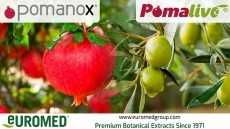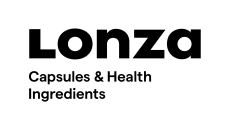Most herb consumers don't follow indications, reports Mayo Clinic
mainstream media has called into question the efficacy and safety
of consumer use of herbal supplements in the United States.
Reported on in this month's issue of Mayo Clinic Proceedings , the findings were taken by researchers from the Departments of Epidemiology, Internal Medicine and Biostatistics from the 2002 National Health Interview Survey (NHIS).
According to the researchers, only two thirds of adults in the US use commonly consumed herbs according to evidence-based indications - a statement likely to ruffle feathers in an industry that says such surveys are misguided in their approach from the outset.
"Unfortunately by not involving experts in the field, studies like this only serve to reinforce the knowledge gap of the majority of medical professionals on natural products/CAM like herbs/botanicals," Daniel Fabricant, the Natural Products Association's vice president of scientific and regulatory affairs, told NutraIngredients-USA.
To come to their conclusion, the University of Iowa scientists whittled down categories of respondents from the NHIS until they had a group of respondents who had taken one of the top ten most commonly used herbs over a period of a year and reported health conditions included on NHIS' list.
The group consisted of 609 respondents out of a total sample population of 30,617.
"The fact that the authors only used a single source of data doesn't begin to cover the vast amount of literature on use of herbals/botanicals and should not be considered a diligent approach to research," said Fabricant.
The research team isolated the survey responses for the following herbs: echinacea, ginseng, ginkgo, garlic, St. John's Wort, peppermint, ginger, soy, ragweed, and kava-kava.
The survey found that, with the exception of echinacea and ginseng, two third of participants did not use these herbs in line with the chosen scientific standard.
While a high 68 percent of respondents used echinacea in accordance to so-called evidence based standards, researchers concluded only 3.8 percent following the same protocol with ginseng.
"This finding may in part be due to a lack of information reaching consumers," researchers wrote in the Mayo Clinic Proceedings.
"Furthermore, health care professionals may not often be a major source of herbal product information for patients."
Studies have reported in the past that consumers tend to be reticent about telling their health care professionals about consumption of herbal products.
In some cases, this has been attributed to concern that a doctor will not approve.
"Those on the frontlines of health care [MD's, nurses] owe it to the population they serve to seek out numerous quality sources of information, to really go outside of their own circle of contacts and knowledge base, to go to the experts to better understand the issues to help eliminate confusion," said Fabricant.
Nonetheless, Fabricant questioned the methods and expertise behind the University of Iowa study.
"Unfortunately by not involving experts in the field, studies like this only serve to reinforce the knowledge gap of the majority of medical professionals on natural products/CAM like herbs/botanicals," said Fabricant.
The University of Iowa researchers measured the responses to the Natural Standard database resource - a research collaboration they say collects data on complementary and alternative therapies.
According to the report in the Mayo Clinic Proceedings , with sales of dietary supplements increasing in the United States by 100 percent between 1994 and 2003, safety in herbal usage has been come an important issue.
"This has raised concerns about the safety of these herbal products because they could have adverse effects that consumers are less likely to report; furthermore, herbs may be adulterated or have the potential to interact with therapeutic drugs," wrote the authors.
The researchers suggested health care professionals should educate consumers and advocate public health policies in order to spread awareness of evidence-based information on the appropriate use of herbs.
Study reference: Bardia, Aditya, et al.
"Use of herbs among adults based on evidence-based indications: findings from the national health interview survey."
Mayo Clinic Proceedings.
2007; 82: 561-566.











